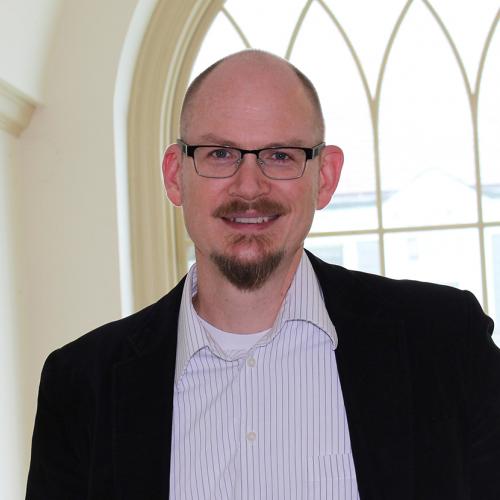

Professor and Associate Dean for Research J. Stephen Downie and Professor Ted Underwood will present their research at the Digital Humanities International Symposium on March 13 and 15 in Japan.
On March 13, Downie and Underwood will be the keynote speakers at the symposium, "Connecting Humanities," at Kyushu University in Fukuoka. The symposium will feature discussions on the construction and analysis of large-scale text data, the latest trends in humanities informatics, and the newly established Graduate School of Humanities and Information Sciences at Kyushu University.
- Downie, who serves as co-director of the HathiTrust Research Center (HTRC), will present "Open Access Data for Open Community Development: TORCHLITE Project." This talk will share the Tools for Open Research and Computation with HathiTrust: Leveraging Intelligent Text Extraction (TORCHLITE) project, which creates text analysis tools, dashboards, and application programming interfaces to open the unique and valuable data of HathiTrust Digital Library.
- Underwood will present "How Will Generative AI Change the Digital Humanities?" In this talk, he will show examples of projects, such as annotating large corpora and asking new questions about detective novels, and discuss the potential impact of generative AI in the humanities.
On March 15, Downie and Underwood will present keynotes at the symposium, "Literary Studies and Research Foundations in the Big Data Era," at Hitotsubashi University in Tokyo. The focus of the symposium will be distant reading—applying computational methods to large amounts of literary data—and how the HTRC provides the research data infrastructure to support digital humanities researchers.
- In his keynote, "Researcher-curated Worksets for Analysis, Reuse, and Dissemination (SCWAReD) Project," Downie will introduce the work of SCWAReD researchers who work with diverse and previously underutilized texts.
- Underwood will present "Understanding Literary Change in the Era of Machine Learning," in which he will show how machine learning can be used not only to highlight aspects of novels, such as the gender roles of characters, but also to extend it to changes in literature.
Downie serves as principal investigator on the HathiTrust + Bookworm text analysis project, joint principal investigator for TORCHLITE, and co-principal investigator for SCWAReD. In addition to his contributions to digital libraries and digital humanities research, Downie is known for helping to establish a vibrant music information retrieval research community. He is founder and first president of the International Society for Music Information Retrieval (ISMIR). Downie holds a bachelor's degree in music theory and composition, along with master's and doctoral degrees in library and information science, all from the University of Western Ontario.
Underwood's research explores the patterns of literature that emerge over long periods of time when examining hundreds or thousands of books at once. He has authored three books about literary history, Distant Horizons (The University of Chicago Press Books, 2019), Why Literary Periods Mattered: Historical Contrast and the Prestige of English Studies (Stanford University Press, 2013), and The Work of the Sun: Literature, Science and Political Economy 1760-1860 (New York: Palgrave, 2005). Underwood earned his PhD in English from Cornell University.